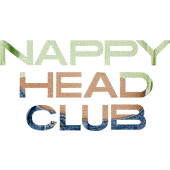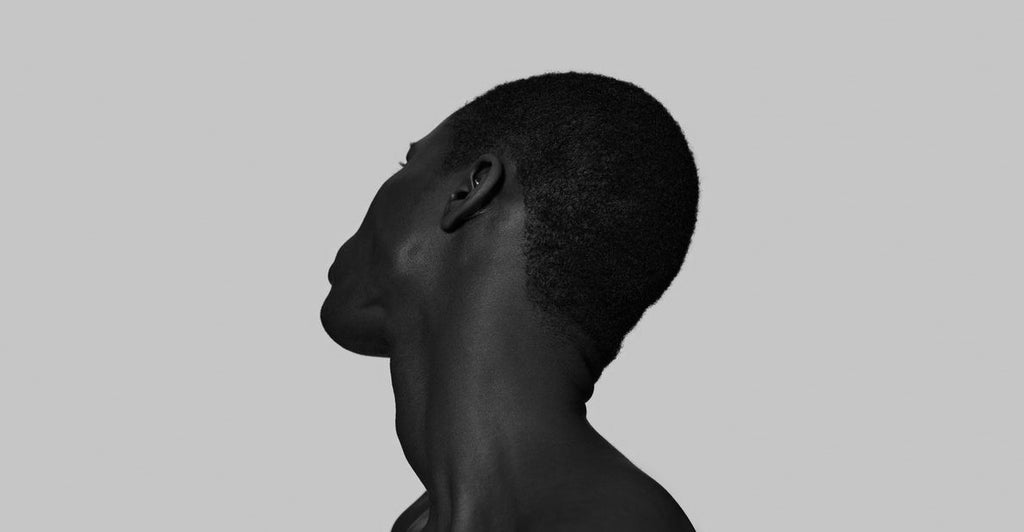When it grows, you have a crown on your head that looks like clouds. It defies gravity and extends upwards toward the sun, almost like tree leaves. It sometimes looks like bushels of blueberries too, each curl round and tight as if giving each other hugs. Other times when it’s buzzed short, it resembles calm ocean waves. It embodies nature’s treasures, and is quite heavenly, yet this sentiment wasn’t always believed. Due to white supremacy, white standards of beauty have been globally imposed which put Eurocentric features at the forefront of almost everything we experience: thin bodies, white (or lighter skin), small noses, and straight (or loosely textured) hair. Due to racism and anti-Blackness, anything that is the antithesis of that, aka Afrocentric features, are deemed as inferior: such as fuller bodies, dark skin, wide noses, and coarse, kinky hair (of course intersectionalities exist since these features aren’t solely attributed to just one demographic,). In recent years the natural hair movement, which has taken social media platforms- especially Youtube- by storm actively works to debunk the notion that kinky, coily hair is ugly and unmanageable by teaching those with the same texture how to care for and love their hair. When one searches natural hair “How-to” videos on YouTube, they’ll see a slew of Black women with various afro textures giving tips and tricks on how to handle or style natural hair, but where are the men?
Before we tackle this question, let’s take a step back to when you were sitting in between your mama’s, or grandma’s, or auntie’s legs, getting your cloud of hair ripped and tugged into plaits that look like tree bark. To when you were sitting on the floor for what felt like hours, while your hunched back ached and you cried endlessly. Or to when you were sitting in that barbershop for the first time and the alcohol burned like hell. Since childhood, Black hair has always been associated with painAnd historically speaking, the negative stereotypes placed on Black hair hasn’t helped our perceptions either. We've all suffered hair trauma to some degree, bestowed with our own unique stories, but the Black hair experience was- and is- quite different for Black girls and boys. Because of biased gender norms, girls are expected to have long, pretty hair. Long hair is equated with femininity. Meanwhile, on the other end of the spectrum, short hair is equated with masculinity, so boys are expected to have short hair. When we discuss the word, “beauty”, everything about it- the routines, meaning, associations- is heavily marketed towards women, and in a world that quite literally strips Black women of their femininity, a world that sees Black women as anything but, it is no surprise our mothers, grandmothers, and aunties placed so much emphasis on our appearance, especially hair. It is the reason why Black girls get their scalps burned off at the ripe age of six (sometimes younger) from a perm, or have warrior scars, called burn marks, from hot combs to straighten out the kinks so they could achieve this notion of “pretty” hair. The road to beauty isn’t the same for boys and girls, and so maybe that’s why Black men aren’t prominent figures in the recent natural hair movement.
Or, it could be because they simply don’t view natural hair in the same way women do. Let’s revisit the natural hair movement and its purpose; it began as a love letter to Black hair, to redefine what “good” hair means in the Black community so it could welcome type 4 textures in all its coily glory. The natural hair movement rejects the belief that Black hair must be straight or loosely curled in order for it to be deemed beautiful. It wants to normalize wearing type 4 hair in its natural state to the grocery store, to work, at an award show, or let it appear on the big screen because it is just as worthy of being seen as looser textures. However, many people, including some Black men, view type 4 hair as undesirable and unattractive. A quick glance over at a YouTube video uploaded by Essence, a black lifestyle magazine, entitled What Black Men Really Think About Our Hair, will show this sentiment sadly rings true. For example, when the men were asked how they would want their partner’s hair to look, a lot named the likes of Halle Berry, Gabrielle Union, Tracee Ellis Ross, Beyonce, Janet Jackson, etc. In one particular section of the video, when the question of weaves vs natural hair was asked,, one man responded “It is in the back of my mind, like, yes she’s pretty but how does she look without it?” Later on in the video, when asked what they hated, most of the men responded “unkempt” hair. When asked what they loved,another man responded “I love when my woman’s hair is flowing…” which begs the question, what is exactly meant by flowing and what is defined as unkempt? The video wasn’t all negative, some affirmed natural hair, however it is clear these men did not have type 4 hair in mind. Unfortunately, some still see loosely curled textures as good hair, succumbing to Eurocentric beauty standards and anti-blackness. It is also quite interesting to note, when watching the video, most of the men had the natural hair texture they often dismissed, it was just cut short- which validates the idea that Black men do not see themselves within Black women, and as a result, do not view natural hair in the same way. Furthermore, it could be a factor as to why they try their hardest to distance themselves from anything nappy related (ie: getting waves so their hair could create the illusion of a loose texture, knowing nothing about hair type but piling on product so their hair can resemble type 3 curls, or wanting their partner to have loose curls). On a radical journey to find all Black features beautiful, especially type 4 hair, some miss a step.
This is a call-out post, not one meant to attack or antagonize, but to bring to realization and self-awareness. Black men can greatly benefit from the natural hair movement, because they’ll be taking themselves into consideration- even if they have a buzzcut. The natural hair movement is more than just about hair- it’s about celebrating undeniably Black features and re-writing what white supremacy has deemed unappealing for far too long. It is reclaiming words like nappy and redefining what “good” hair is. Black men, here are your next steps: Take a look in the mirror and tell yourself your Black-ass-features are beautiful, especially your hair. Then express that same sentiment to your fellow Black peers. I’ve got a crown on my head that looks like clouds, and so do you, so take care of it.




JOIN THE DISCUSSION (0 comments)